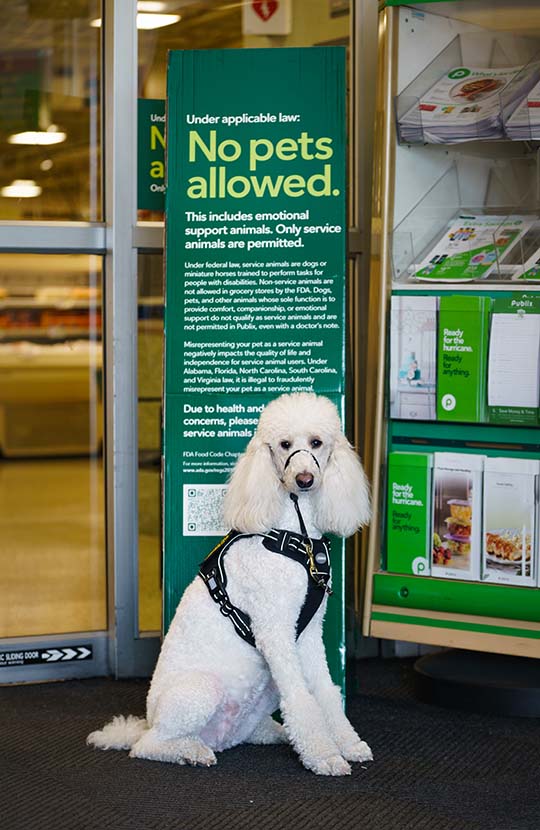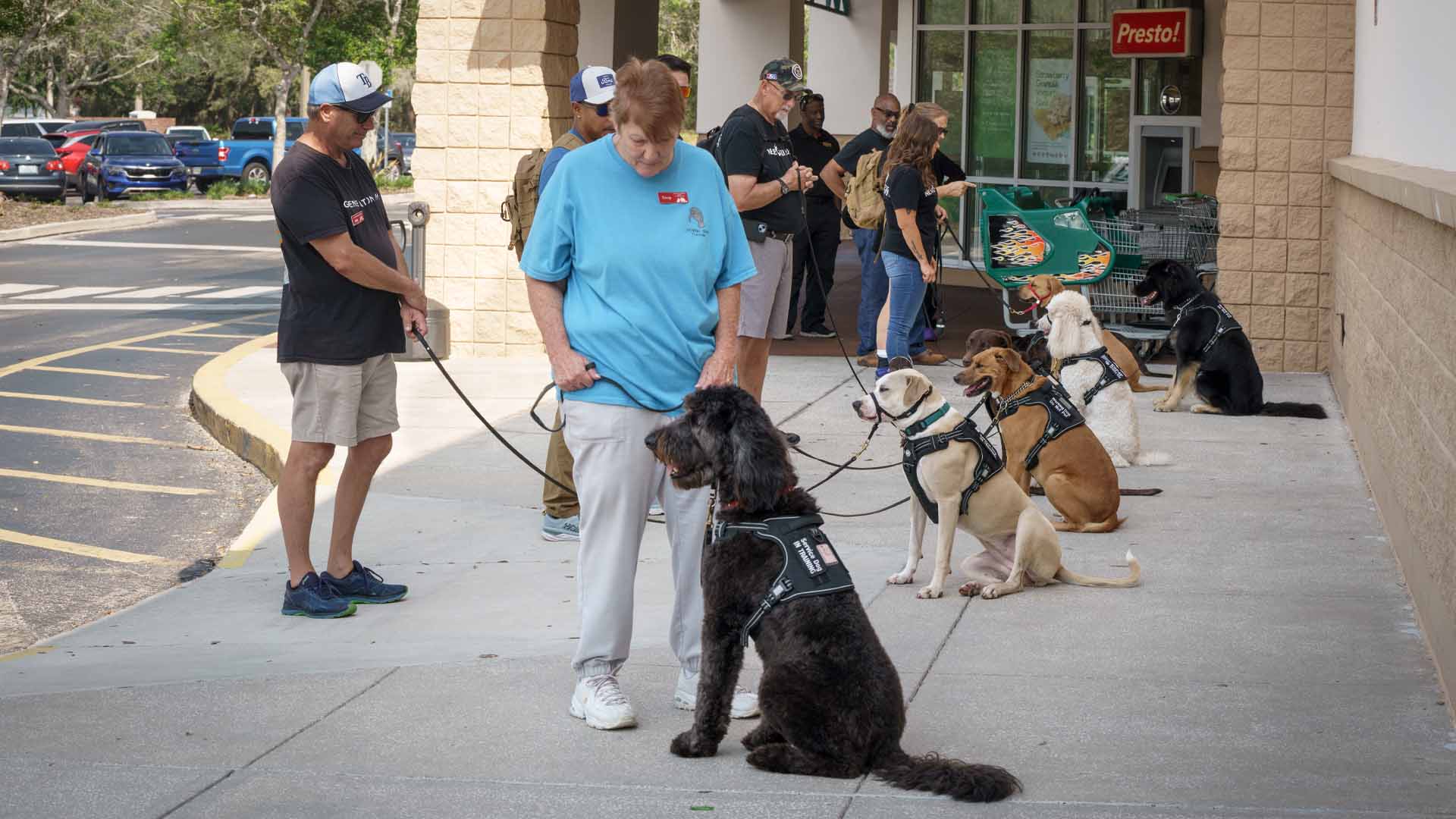K9 Partners for Patriots proudly supports Publix’s recent decision to exclusively welcome service dogs in their stores.
This commitment to accommodating individuals with disabilities reflects a dedication to inclusivity and accessibility. By creating an environment that respects the role of service dogs, Publix is not only adhering to legal guidelines but also fostering a more empathetic society. This move resonates deeply with our mission to support veterans with service dogs, and we applaud Publix for their forward-thinking stance.

Publix’s Policy
In a recent move, Publix, one of the nation’s leading supermarket chains, has made a significant decision only to allow service dogs in their stores. This policy, while creating a stir among shoppers and the public at large, reflects Publix’s commitment to creating an inclusive and accommodating shopping environment. This article delves into the reasons behind this decision, its potential impact, and the broader implications for businesses and customers alike.
The New Policy: Service Dogs Only
Publix announced a new policy that restricts entry to only service dogs within their stores. This means that pets, emotional support animals, and other non-service animals will no longer be permitted in their locations. This policy shift aligns Publix with the guidelines outlined by the Americans with Disabilities Act (ADA), which recognizes service dogs as highly trained animals that perform specific tasks for individuals with disabilities.
Reasons Behind the Decision
Publix’s decision to implement this policy can be attributed to several key reasons:
ADA Compliance: The ADA outlines clear guidelines for service animals, distinguishing them from pets and emotional support animals. By adhering to these guidelines, Publix is ensuring that their policy is consistent with federal law.
Customer Experience: Allowing only service dogs can enhance the shopping experience for customers with disabilities who rely on these animals for assistance. The presence of well-trained service dogs can also contribute to a calmer and more controlled store environment.
Hygiene and Allergies: By restricting animals to service dogs, Publix aims to maintain a higher standard of cleanliness and reduce the risk of allergies among both customers and employees.
Legal and Liability Concerns: The distinction between service animals and other animals can sometimes be challenging to make. By allowing only service dogs, Publix can avoid potential legal issues and ensure the safety of all customers.
Impact on Different Stakeholders
Customers with Disabilities: This policy will likely be warmly received by customers who rely on service dogs. These individuals often face challenges when navigating public spaces, and Publix’s decision underscores their commitment to fostering a more accessible environment.
General Shoppers: For the majority of shoppers who don’t require service dogs, this policy change might not have a significant impact on their shopping experience. However, the cleaner and more controlled atmosphere resulting from this policy could lead to an overall positive experience.
Pet Owners: While pet owners might be disappointed by the new policy, it’s essential to recognize that Publix’s decision is driven by the desire to accommodate individuals with disabilities. Many pet owners appreciate the effort to maintain a sanitary and allergen-free shopping environment.
Broader Implications
Publix’s decision to admit only service dogs could set a precedent for other businesses to reevaluate their policies regarding animals in their establishments. This move highlights the importance of creating accessible spaces that cater to a diverse range of customers. As society becomes more attuned to inclusivity and accessibility, businesses that prioritize these values are likely to gain customer loyalty and positive recognition.
Conclusion
Publix’s recent policy change to allow only service dogs in their stores is a bold step towards fostering a more inclusive and accommodating shopping environment. By adhering to ADA guidelines, Publix showcases its commitment to providing equal access to all customers. While this decision might require an adjustment period for some, it ultimately aligns with broader societal shifts toward accessibility and inclusivity. As other businesses consider similar policy changes, Publix serves as a trailblazer in setting new standards for inclusive shopping experiences.




